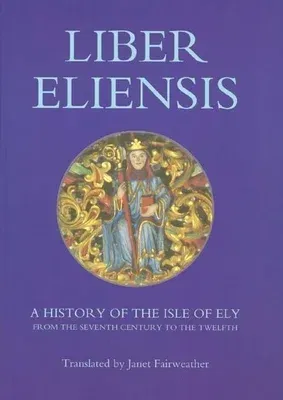First translation into English of 12th-century history of Ely from its
foundation, including the Danish sack, Hereward's resistance to the
Normans, and the repercussions of Becket's martyrdom.
This is the first ever translation from Latin into English of an
important source for English and ecclesiastical history. The Liber
Eliensis is an account of the history of the Isle of Ely compiled by a
monk of Ely monastery in the later twelfth century. He uses evidence
from the monastery's Latin and Old English archives, combined with
chronicle data and biographies of saints and heroes, to tell the story
of Ely in three parts. The first book, chiefly concerned with the
abbesses of Ely (St Aethelthryth founded the house as a double house
under female leadership), extends from the conversion of East Anglia to
Christianity to the aftermath of the Danish sack; the second bookcovers
970-1109, when the Benedictine monastery was ruled by abbots, and
includes an account of Hereward's resistance to William the Conqueror;
the third book begins at the point when Ely first became the seat of a
bishop, and extends to the compiler's own times, ending with the
martyrdom of Thomas Becket.
The translation does full justice to the compiler's gift for
story-telling and his wide range of source material; it gives priority
to the readings of the oldest manuscript of the Liber Eliensis, but
covers all the material in the later but fuller recension of the Latin
text presented in E.O. Blake's 1962 edition. The volume is completed
with notes on the text and sources and an introductory essay.
JANET FAIRWEATHER is a freelance researcher and translator, a member of
the classics faculty, Cambridge University.

